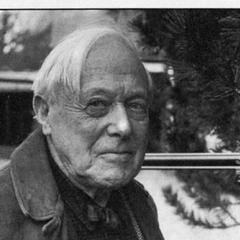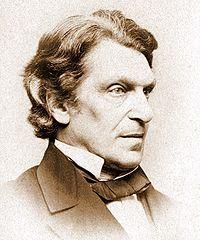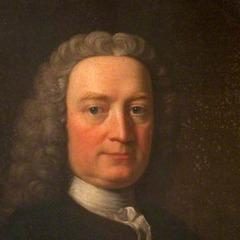George Henry Lewes Quotes - Page 4
"On Actors and the Art of Acting". Book by George Henry Lewes, p. 60, 1875.
A man may be variously accomplished, and yet be a feeble poet.
George Henry Lewes (1891). “The Principles of Success in Literature”
'The Physiology of Common Life' (1859) ch. 12
Pliny... makes the statement, and for untrustworthiness of statement he cannot easily be surpassed.
George Henry Lewes (1864). “Aristotle: a chapter from the history of science including analyses of Aristotle's scientific writings”, p.15, London : Smith, Elder and Company
George Henry Lewes (1846). “The Spanish Drama. Lope de Vega and Calderon”, p.89, London, Knight
George Henry Lewes (1864). “Aristotle: a chapter from the history of science including analyses of Aristotle's scientific writings”, p.86, London : Smith, Elder and Company
George Henry Lewes (1859). “The physiology of common life”
The object of Literature is to instruct, to animate, or to amuse.
George Henry Lewes (1891). “The Principles of Success in Literature”
George Henry Lewes (1891). “The Principles of Success in Literature”
George Henry Lewes (1847). “Ranthorpe ...”, p.317
George Henry Lewes (2011). “The Life and Works of Goethe: With Sketches of His Age and Contemporaries from Published and Unpublished Sources”, p.260, Cambridge University Press
George Henry Lewes (1891). “The Principles of Success in Literature”
No man was ever eloquent by trying to be eloquent, but only by being so.
George Henry Lewes (1891). “The Principles of Success in Literature”
John Forster, George Henry Lewes (1896). “Dramatic Essays”
George Henry Lewes (1891). “The Principles of Success in Literature”
George Henry Lewes (1891). “The Principles of Success in Literature”
George Henry Lewes (1891). “The Principles of Success in Literature”
There are many justifications of silence; there can be none of insincerity.
George Henry Lewes (1891). “The Principles of Success in Literature”
George Henry Lewes (1864). “The Life of Goethe”, p.466
Literature delivers tidings of the world within and the world without.
George Henry Lewes (1891). “The Principles of Success in Literature”
George Henry Lewes (1891). “The Principles of Success in Literature”







